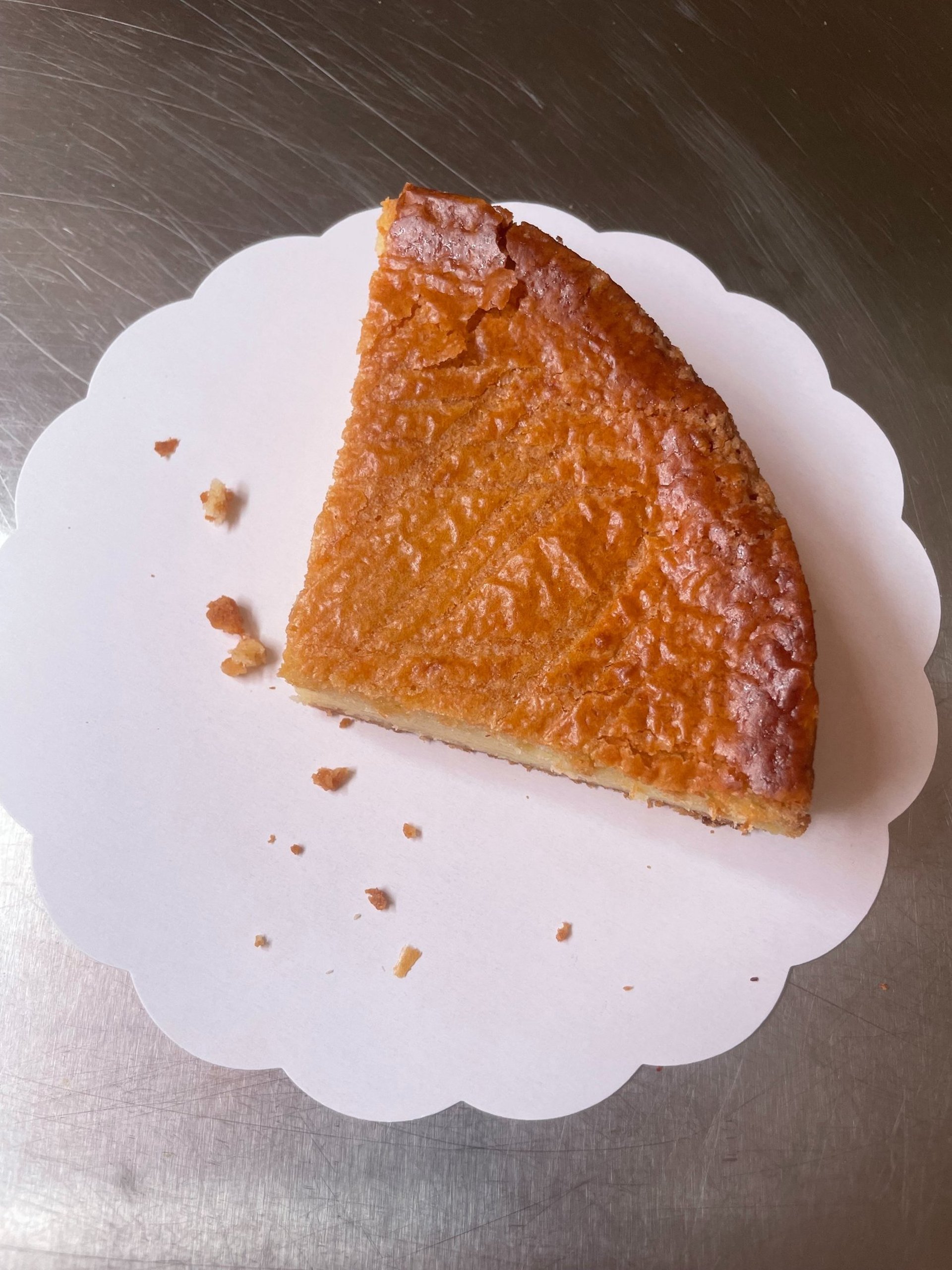
The Place du Gateau Basque in the world of gastronomy and tourism in the Basque Country:
The Basque Country, a region straddling France and Spain, has established itself as a major tourist destination thanks to the richness of its cultural and natural heritage. Among its many advantages, gastronomy occupies a preponderant place, constituting a real pillar of the tourist attraction of this region.
The importance of gastronomic tourism in the Basque Country:
Gastronomy represents more than 25,000 direct jobs, or more than 10 % of the active population (Source Extencia) and the Basque cake plays an increasing role in this dynamic. Its global popularity has created a real "tourism of the Basque cake" with visitors who specifically come to taste the original in the historic pastries of Cambo les Bains, St Jean de Luz and Sare.
This gastronomy is based on exceptional local products: seafood (sardine, hake, tuna, anchovies), quality meats (Basque pork Kintoa, Manech black or red head, Kiaxera cane, cow and goat Pirenaica), cheeses (Ossau-Iraty), Espelette peppers, pepper of Anglet and Seignanx and of course Pastries, traditional confectionery, not forgetting chocolate and all its history. Gastronomic tourism in the Basque Country manifests itself through several experiences: - starred restaurants, traditional hostels and cideries - local markets such as that of Bayonne or Saint -Jean -de -Luz - Visits to local producers (Irouléguy vineyards, Espelette pepper producers) - Culinary workshops and tastings - Gastronomic festivals and festivals .
The Basque cake: pastry emblem of the region among the Basque culinary specialties, the Basque cake (etxko bixkotxa) occupies a special place. This traditional pastry has become a real identity symbol. The Basque cake is characterized by its golden sweet dough marked with crossed patterns, and its fodder which can be with pastry cream or black cherries jam. This duality reflects the different family traditions of the region.
The economic and cultural impact of the Basque cake, it generates a significant economic activity: - many pastries specializing in its artisanal manufacture - Creation of the Basque Cake Museum in Sare - Organization of the Basque Cake Cake Festival in Cambo -les -Bains every October, association, brotherhood!
Development of derivative products and tourist souvenirs This pastry heritage contributes to the valuation of the territory and its tourist attractiveness. It also represents a vector of transmission of the Basque culture, because each cake tells a family and regional story. An integrated tourism development strategy, local players have understood the importance of gastronomy as a lever for tourism development. They have implemented several initiatives: - Creation of gastronomic roads including Basque cake producers - Labelization and protection of traditional recipes - Professional training in food trades - International promotion of Basque gastronomy, this approach makes it possible to attract quality tourism, eager to discover the authenticity of the territory through its flavors, while preserving local cultural identity. The Basque cake illustrates perfectly how a traditional gastronomic product can become a cultural ambassador and an economic engine for a region, contributing to sustainable tourism and respectful of local traditions
To explain to the young generation that gastronomic tourism is a real asset for the Basque Country, we must adopt a tone that is both educational, engaging and connected to their values (ecology, authenticity, local, experience).
Do you know why we eat as well here? This is because we are fortunate to have an exceptional setting: sea, mountain, mild climate ... This gives fresh and varied products - from fish to cheeses, passing by peppers, cherries or sheep's milk. "
Key message: The Basque terroir is a gift from nature. And this nature is protecting it by valuing what it produces better.
Navarre one of the seven provinces of the Basque Country: a strategic agrifood reservoir for the Basque Country
Located in the south-east of the Basque Country, Navarre is distinguished by a unique climate configuration in Spain: it combines three main types of climate on a relatively small territory. The northwest facade has an oceanic climate, favorable to meadows, cattle breeding and dairy production. The center, subject to a continental climate, allows the cultivation of cereals, the production of full -terrangers and the development of mixed agriculture. Finally, the southern Navarrais, predominantly Mediterranean, offers an ideal terroir for arboriculture, vegetable crops under irrigation, viticulture and olive growing.
This climatic and agronomic diversity gives Navarre a remarkable wealth of agricultural productions, which partially feeds the neighboring Basque Country. Artichokes of Tudela, peppers del Piquillo, white asparagus, olive oils, navarre wines (do Navarra), breeding meats, sheep cheeses (especially those of the Roncal valley), cold meats and fresh vegetables appear among the most exchanged or integrated products in the traditional and contemporary Basque kitchen.
The geographic proximity, the complementarity of the terroirs and the historical links between the two territories promote continuous circulation of foodstuffs, consolidating the gastronomic interdependence between Navarre and the Basque Country, both domestic and in restoration and the regional agrifood industry.
Gastronomy is more than a meal: it's a culture
"Each dish tells a story, each recipe is the fruit of generations of know-how. When you taste a Basque cake or an axoa, you bite in a part of the Basque identity."
Traveling through taste is to discover a living and proud culture.
"Rather than mass tourism, here we favor meaning tourism. Visitors who eat local support small producers, craftsmen and markets."
Gastronomic tourism, when it is well done, brings the local economy to life without damaging the environment is also to live true moments, far from clichés.

This success story shows how a local specialty can become a real lever for territorial economic development thanks to its world virality.
The Basque cake can have a future as rich as its past, provided that its tradition is not frozen, but alive , transmitted with care and enhancement in contemporary forms. Loyalty to taste, local rooting, and open opening in the world are the keys to its sustainability.
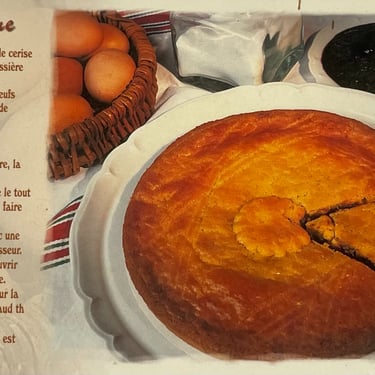
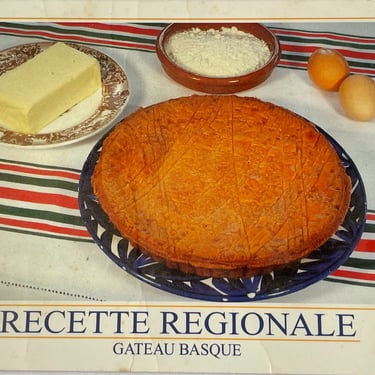
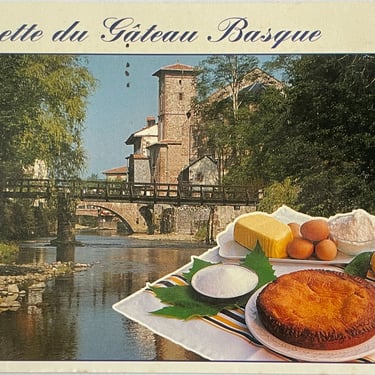
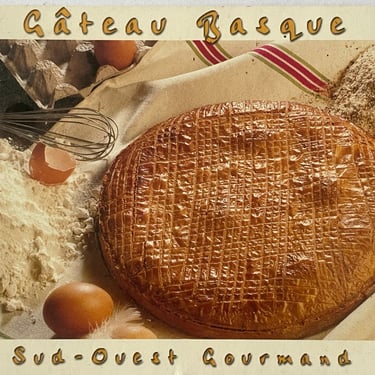
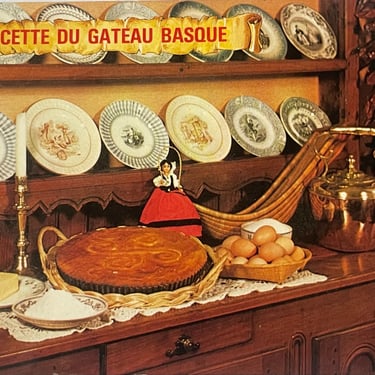
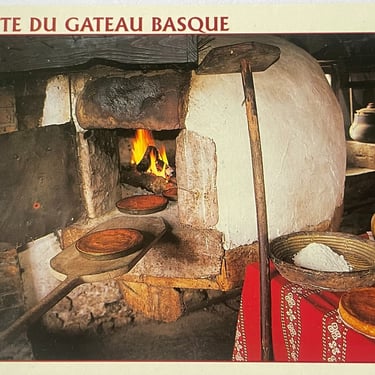
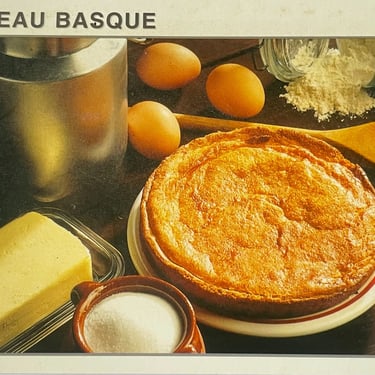
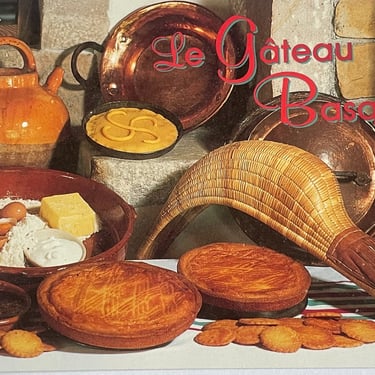
Various postcards with recipes and holiday souvenirs
🌿 “Between travel memories and cooking secrets, each menu and recipe whispers the soul of the Basque Country.”
🍒 “From postcards to recipe books, the Basque cake is passed down like a story to be savored.”
✨ “Little yellowed pieces of paper, images from yesterday… they keep the sweet and sugary memory of Basque cake.”
🥧 “Here, each card tells a story of a landscape, each recipe a gesture: together, they depict Basque delicacies.”
📜 “These treasures gleaned over time are invitations to travel through the gourmet memory of the Basque Country.”
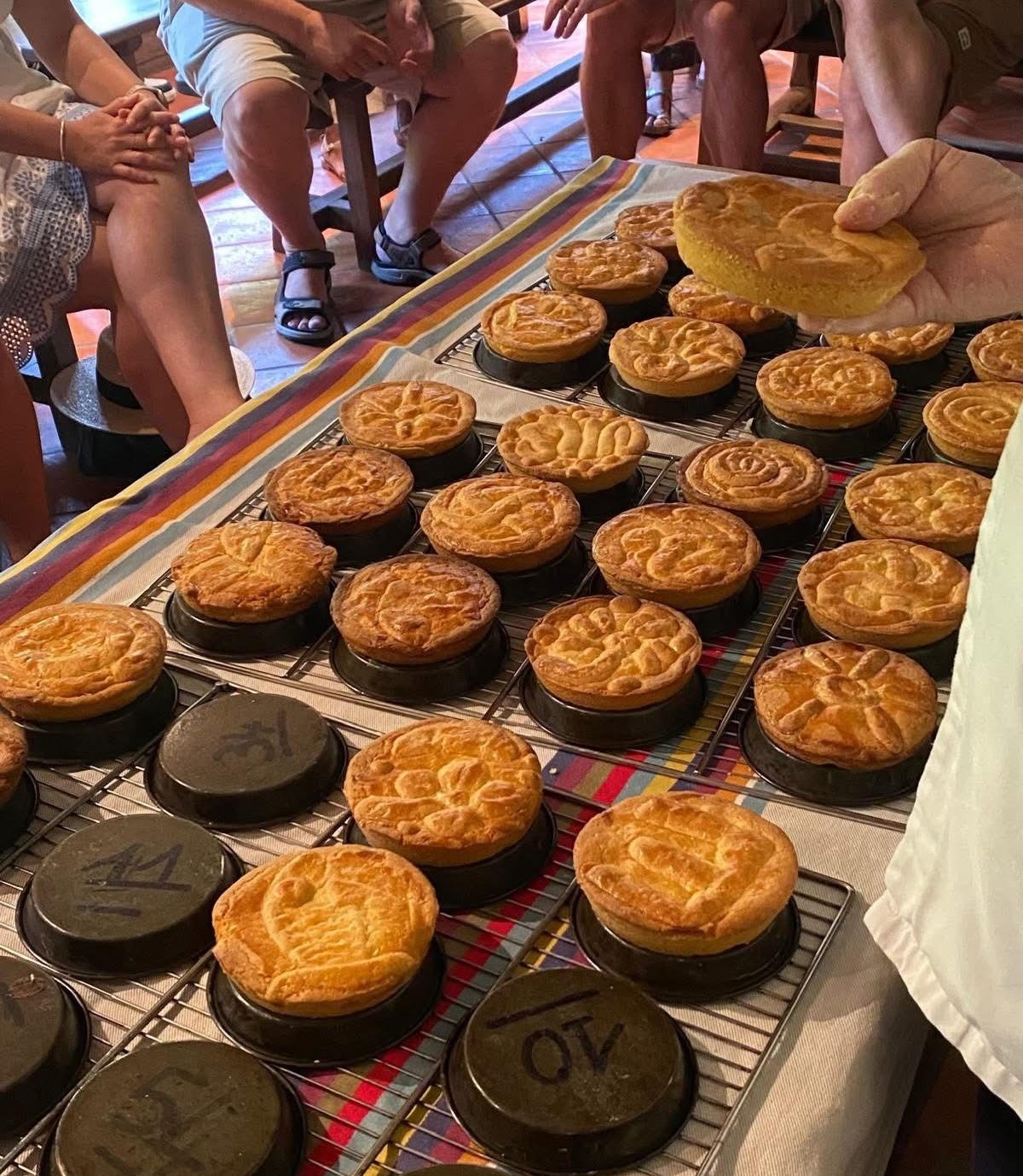

Whether it's as big as a party or as small as a secret, the Basque cake keeps the same taste of happiness.
Discover the authenticity of the Basque cake.
Gourmet tradition and heritage
+33 6 08 48 09 85
© 2025. All Rights Reserved.